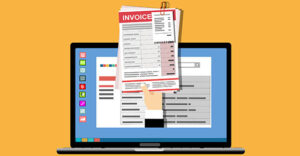When owners, managers and salespeople attend trade shows, call on customers or evaluate suppliers, they may incur meal, travel and entertainment expenses. Many of these expenses may be deductible if they’re properly substantiated, but some of the rules have changed under the Tax Cuts and Jobs Act (TCJA).
Entertainment expenses no longer deductible
“Entertainment” expenses used to often be lumped in with meal and travel expenses, but the rules for entertainment expenses have changed dramatically under the TCJA. Specifically, it disallows deductions for most business-related entertainment expenses, including the cost of facilities used to entertain customers.
Examples of nondeductible expenses under the TCJA include:
- Tickets to sporting events,
- License fees for stadium or arena seating rights,
- Private boxes at sporting events,
- Theater tickets,
- Golf club dues and greens fees,
- Company golf outings for customers, and
- Hunting, fishing, and sailing outings.
Some business-related entertainment expenses may still be deductible, but only in very limited circumstances (such as when entertainment is presented at an event open to the public).
Keep detailed records
Business meal and travel expenses are still deductible if they qualify as legitimate business expenses, though the deduction for meal expenses continues to be limited to 50% in most cases.
You must keep detailed records to substantiate any business expense. But it’s especially important for meal and travel expenses. Why? These expenses are IRS hot buttons, so those records are likely to be scrutinized if you’re audited.
Proper substantiation includes these details about the expense:
- The amount,
- The time and place, and
- The business purpose.
The IRS allows recordkeeping shortcuts under certain circumstances. For example, a business owner may opt to use the standard mileage rate, as established by the IRS for a given tax year, in lieu of substantiating actual auto expenses. In 2019, the standard mileage rate is 58 cents per mile for business travel. In addition, if you drive the same route consistently, you may be able to use an accurate record for part of the year to show your business mileage for the whole year.
If you reimburse employees for meal and travel expenses, make sure they’re complying with all the rules. And enforce a policy that requires timely expense report submission. It’s almost impossible to re-create expense logs at year end or to wait until the IRS sends a deficiency notice.
Review policies and procedures
If you haven’t done so already, it’s important to assess your company’s expense allowance policies to determine if the TCJA provisions warrant changes — especially for entertainment expenses.





